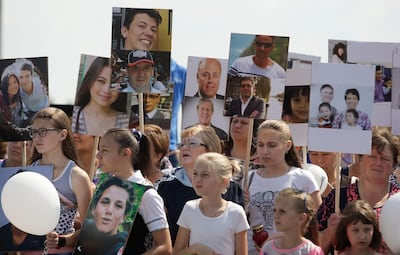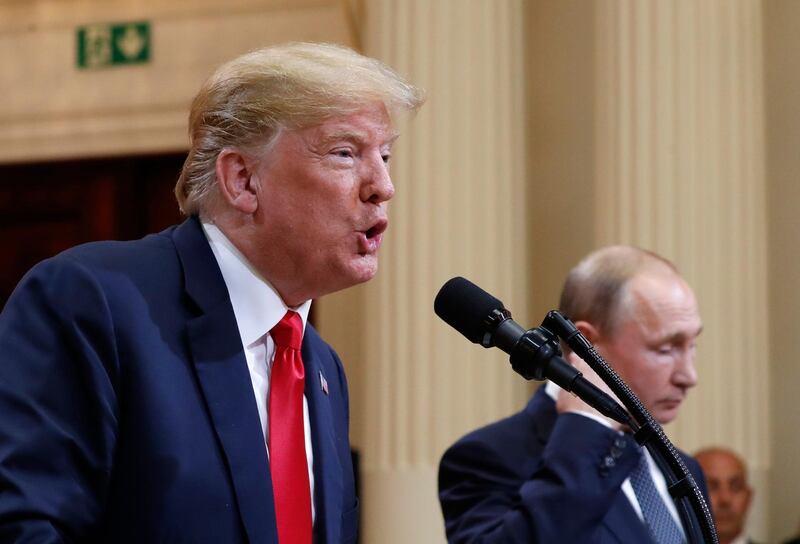The US-Russia summit took place the day before the fourth anniversary of a Malaysian plane being shot down over eastern Ukraine, killing all 298 people on board.
The territory is controlled by pro-Russian separatists but US President Donald Trump made no mention of Ukraine after the summit, and hours later its president Petro Poroshenko found himself in a lonely place.
With eastern Ukraine still controlled by Russia’s militias and neighbouring Crimea annexed by Moscow, Mr Poroshenko tweeted that Ukraine was ready to defend itself.
“We are ready to defend our land even if we must do it alone, without international support,” he posted.
Last week, Dutch investigators said the Russian military’s 53rd Anti-Aircraft Missile Brigade from Kursk sent a Buk Telar missile to eastern Ukraine, reinforcing suspicions of Russian responsibility for MH17.
The investigative website Bellingcat has named the Russian colonel it believes led the attack.
“What happens when an aggressor is a member of the UN Security Council, which can veto and block, as was the case with the decision made by the independent tribunal and the investigation into the MH17 flight downing?” Mr Poroshenko asked.
“Russia then blocked the decision, thereby recognising its responsibility for this terrible crime. Russia must be held accountable for this terrorist act.”

It is just days since the end of the Sea Breeze joint military exercises of 19 nations in Ukraine, designed to shore up confidence in its defence. Mr Poroshenko was at the Nato summit last week as a privileged partner of the alliance.
It is not just Kiev that felt a cold shove to the side as Mr Trump embraced Russian leader Vladimir Putin.
European hopes that Mr Trump would mellow with exposure to the complexity of global issues are now dead.
Radoslaw Sikorski, Poland’s former foreign minister, warned of the danger posed to the US security umbrella over Europe.
“And now, as a US ally, we are supposed to believe that if president Putin launches a hybrid war or even a nuclear strike against Poland, president Trump will threaten to nuke him back?” Mr Sikorski asked yesterday.
Jonathan Eyal, associate director of the Royal United Services Institute, said that after Mr Trump’s actions in his week-long European trip, things would never be the same again.
“The world will have to get used to Trump the Wrecker, and the Europeans who have benefited most from established co-operative structures with the US are the first to be confronted with this new fact,” Mr Eyal said.
Carl Bildt, a Swedish former prime minister, said the American president had given Mr Putin a free hand to pursue further aggressive moves against Russia’s neighbours.
"Any reasonable Kremlin interpretation would be that Russia can go on pursuing its policies without significant White House objection," he wrote in the Washington Post. "A remarkable summit it was. Trump had the opportunity to meet Putin, and in four hours the entire relationship was transformed. We saw Putin stand by his positions on all the issues while Trump hardly challenged any of them and directed his fire and fury at his own country."
Remarkable press conference in many respects. Trump hadn’t a single word to say on Russian actions against Ukraine. Nada. Null. Zero. Nothing. pic.twitter.com/DaQOG0IBYW
— Carl Bildt (@carlbildt) July 16, 2018
Heiko Maas, the German foreign minister, had already predicted the Europeans would change their relationship with America, after Mr Trump described the continent as a “foe”.
"To maintain our partnership with the USA we must readjust it,” he said.







